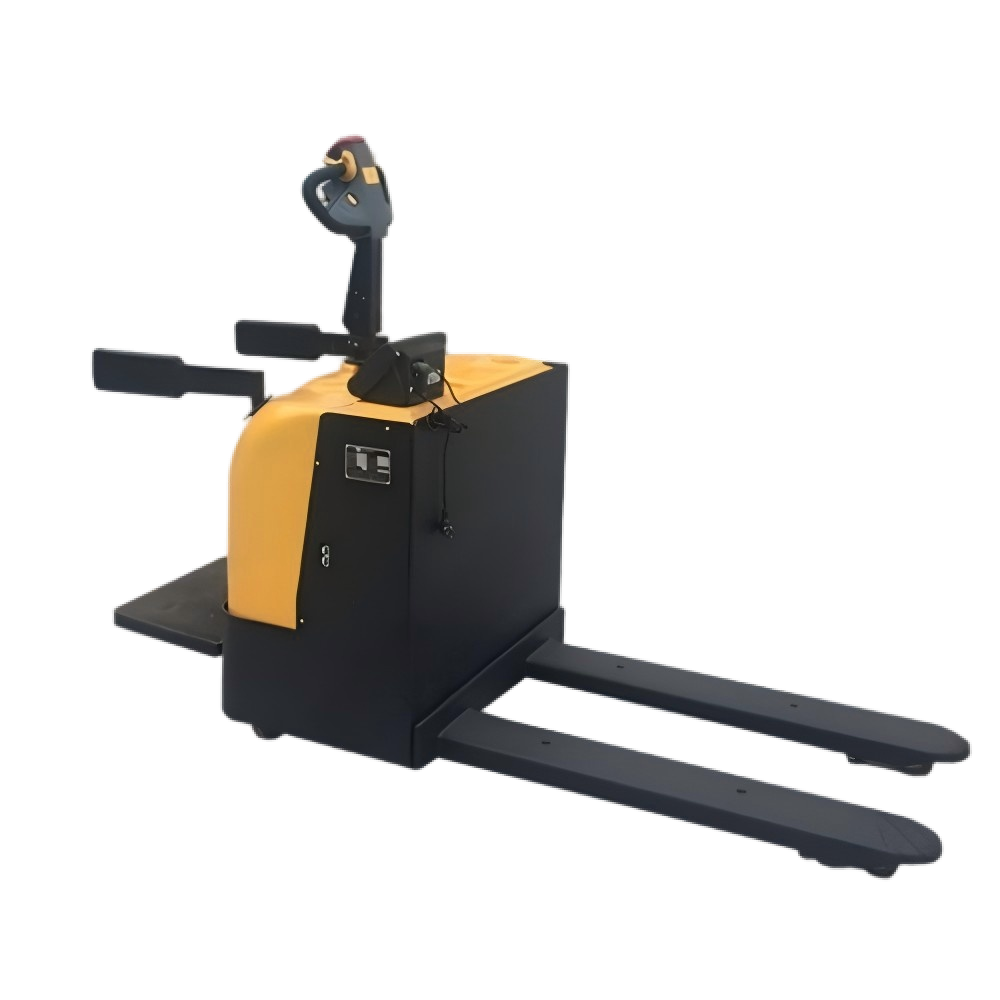
Privacy statement: Your privacy is very important to Us. Our company promises not to disclose your personal information to any external company with out your explicit permission.

Min. Order:1
LYEA Series All-Electric Forklift Trucks - Advanced Material Handling Solutions Product Overview:The LYEA Series represents the next generation of all-electric material handling equipment, offering a complete range of high-performance forklifts...
Min. Order:1
LYEA Series All-Electric Forklift Trucks - Advanced Material Handling Solutions Product Overview:The LYEA Series represents the next generation of all-electric material handling equipment, offering a complete range of high-performance forklifts...
Min. Order:1
All Electric Forklift, electric forklift, Material Handling, Forklift truck LYEA Compact Electric Stacker Truck - Smart Warehouse Material Handling Solution Product Overview:The LYEA electric stacker truck series revolutionizes warehouse material...
Min. Order:1
LYEA electric stacker truck material transport electric forklift truck for warehouse use compact electric stacker truck LYEA Compact LYEA Electric Stacker – Effortless, Space-Saving Material Handling Precision Handling for Modern...
Min. Order:1
all electric stacker truck LYEA model compact electric forklift truck LYEA all electric stacker truck material handling Compact LYEA Electric Forklift – Agile, Efficient, and Eco-Friendly Warehouse Transport Streamline Your Operations with the...
A forklift truck (commonly referred to as a Lift truck, fork truck, or forklift) is a powerful industrial vehicle equipped with twin prongs (forks) attached to the front. It is specifically designed to lift, move, and place palletized loads over short distances with precision and safety. As the cornerstone of modern material handling, forklifts are indispensable in warehouses, distribution centers, manufacturing plants, and construction sites worldwide.
The primary function of a forklift is to transport goods efficiently, but its capabilities extend to stacking loads in high-bay storage racks, loading/unloading trucks and shipping containers, and even acting as a mobile work platform.
Understanding its main parts is crucial for operation and safety:
Forks: The L-shaped metal arms that slide under a load. They are attached to a carriage.
Mast: The vertical assembly that lifts and lowers the load. It may feature single, duplex, or triple stages for different lift heights.
Overhead Guard: The protective metal roof that shields the operator from falling objects.
Counterweight: A weight fixed to the rear of the vehicle to balance the load being lifted at the front.
Power Source: Forklifts are typically powered by:
Electric Batteries: Ideal for indoor use; zero emissions and quieter operation.
Internal Combustion (IC) Engines: Run on diesel, LP gas, or gasoline. Best for outdoor or rough-terrain applications.
Selecting the right type is critical for operational efficiency:
Warehouse Forklift: The most common type, including counterbalance forklifts (with weight in the rear) for general loading and unloading.
Telehandler (Telescopic Handler): Features a telescoping boom that extends forward and upward, often used on construction sites.
Reach truck: Designed for narrow aisles, with forks that can "reach" forward into storage racks.
Order Picker: Used in warehouses where the operator lifts up to the rack to manually pick individual items.
Pallet Jack / Pallet Truck: A smaller, manual or electric-powered tool for moving pallets at ground level.
Rough Terrain Forklift: Equipped with large, pneumatic tires for use on uneven surfaces like construction yards.
Forklift trucks are the backbone of supply chain logistics:
Warehousing & Logistics: Loading/unloading trucks, moving goods, and high-density storage (**
pallet racking**).
Manufacturing: Moving raw materials to production lines and transporting finished goods.
Construction: Transporting building materials like lumber, steel, and bricks around a job site.
Retail & Wholesale: Stocking inventory in backrooms and large stores.
Ports & Shipping: Container handling and moving cargo in intermodal yards.
Why are Forklift Trucks Essential?
Increase Productivity: They move heavy loads faster and with less physical labor than manual methods.
Improve Safety: Reduce workplace injuries associated with heavy lifting when operated correctly.
Optimize Space: Enable vertical storage in warehouses, maximizing cubic capacity.
Versatility: Can be fitted with various forklift attachments (like clamps, rotators, or sideshifters) to handle specialized loads.
Keywords and Synonyms for Forklift Trucks:
Lift truck, fork truck, material handling equipment, pallet truck, warehouse forklift, electric forklift, diesel forklift, Komatsu forklift, Toyota forklift, Clark forklift (popular brands), industrial truck, reach truck, order picker.
In conclusion, the forklift truck is far more than a simple vehicle; it is a critical piece of material handling equipment that drives efficiency and productivity across countless industries. Choosing the right type and capacity for your specific application is key to optimizing your operations.

Forklift truck
Forklift truck
All electric transport vehicle


Privacy statement: Your privacy is very important to Us. Our company promises not to disclose your personal information to any external company with out your explicit permission.

Fill in more information so that we can get in touch with you faster
Privacy statement: Your privacy is very important to Us. Our company promises not to disclose your personal information to any external company with out your explicit permission.